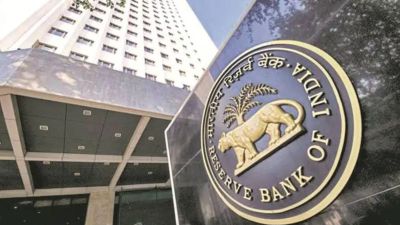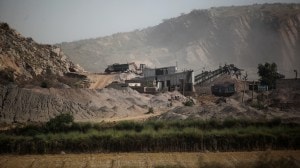The view from Pakistan
The controversy over opposition leader L.K. Advani8217;s praise of Mohammed Ali Jinnah has had an adverse fallout in Pakistan. People there...

The controversy over opposition leader L.K. Advani8217;s praise of Mohammed Ali Jinnah has had an adverse fallout in Pakistan. People there have come to infer that Indian opinion towards Pakistan is rigid and unaccommodating. If this were the attitude at the time of on-the-track talks, they argue, what would happen when the two countries reach the stage of give and take? This question seems valid. But where Pakistan goes wrong is in assuming that the BJP represents Indian opinion. It does not represent even dominant opinion among the Hindus. The BJP has a parochial appeal and does not draw attention beyond loyal Hindu chauvinists.
My view is that Advani wanted to test the waters while in Pakistan. Realising that his party had come to the end of the road, he wondered whether he could give a new entity to the BJP. That meant wooing the Muslims who were totally opposed to the party. Advani gained in purpose and rose in stature by departing from his usual communal line. But when it came to the crunch, he lacked courage. He feared the wilderness. He fell between the two stools. He did not realise that the compromise resolution was an epitaph 8212; a sort of goodbye gesture.
It is also not fair to judge Indian opinion when the question is that of Partition, which has always been too emotional an issue. Of course, the country has been hurt following the division. It did not know how to cope with the two-nation theory when it had more Muslims than Pakistan. It is true that Jinnah agreed to the Cabinet Mission Plan, which gave autonomy to the Muslim majority areas and kept India together through a weak Centre. But the Congress had a bitter experience after giving Liaquat Ali Khan the portfolio of finance in the interim government. No ministry could recruit even a peon without his sanction. Jawaharlal Nehru and Sardar Patel were so exasperated that they preferred Partition to another struggle to oust the British.
Has Partition served the purpose for the Muslims? In Pakistan, people avoid the word, Partition. On August 14, they celebrate their 8220;deliverance8221;, not so much from British rule as from 8220;Hindu rule8221;. During my trips to that country, I have heard people often saying they are happy that at least they have 8220;some place8221; where they feel secure, free from 8220;Hindu domination8221;. The fact is that the Muslims have been the biggest losers of Partition. They are now spread over three countries 8212; India, Pakistan and Bangladesh. Imagine the influence their numbers 8212; and their votes 8212; could have commanded in an undivided subcontinent. They would have been more than one-third of the total population.
In any case, all this is history and no purpose is served by going over it again and again. In fact, the youth in both India and Pakistan are sick of the never-ending debate on Partition. What is relevant today is how the mistrust on both sides can be removed. The dialogue on confidence building measures is vital but the meeting of people from both sides is more important. All the resolves on both sides to relax visa facilities have little to show. People-to-people contact in lakhs may demolish the walls of suspicion between the two countries. But the establishment on either side is not yet ready for it.
Still, I would like to know what the Pakistanis have in mind when the stage of give-and-take is reached. If it is Kashmir, Prime Minister Manmohan Singh has made it clear more than once that India can neither redraw the borders nor divide the state on the basis of religion. If President General Pervez Musharraf can still reach a solution within a fortnight, as he claims, he must have come to terms with what Manmohan Singh has said. But Musharraf8217;s remark that it all depends on the courage of leaders is too simplistic. What holds good in Pakistan may not hold good in India. The change of borders in India is not only dependent on a two-thirds majority in Parliament but also on the Supreme Court which assesses whether a constitutional amendment violates the letter and spirit of the Constitution.
The Hurriyat 8212; some of its leaders have talked about a united states of Kashmir 8212; has its main support in the Valley. It does not represent either Jammu or Ladakh, the two other areas of the state. This has been the tragedy of the Hurriyat. It never cultivated those areas. The 8220;Azad Kashmir8221; leaders, who consider themselves closer to Jammu than the Valley, noted that the Hurriyat delegation to Pakistan did not include anybody from Jammu. 8220;Azad Kashmir8221; speaks Punjabi and does not understand a word of Kashmiri. I wish the Hurriyat leaders had discussed these issues with the people in Jammu before going to Pakistan. Even now they can 8212; and should 8212; but they will have to do something more to remove Jammu8217;s suspicion after their 8220;long and intimate talks8221; with Pakistani leaders.
Also, how will the Hurriyat remove fears which one of its leaders has raised by disclosing that Pakistan8217;s information minister, Sheikh Rashid Ahmed, helped them with arms and training during the insurgency in the nineties? No amount of denying it will do because the Pakistan People8217;s Party has confirmed it. The Sheikh8217;s involvement is an open secret, as a leading Pakistani commentator has said. Strange, the Sheikh should have changed because he is a prodigy of the late Shoorish Kashmiri, leader of Ahrar, a party that was an ally of the Congress in fighting against the Muslim League and the British.
The revelation by the Hurriyat leader has come at a time when Manmohan Singh is trying to traverse quickly on the road to peace with Pakistan. He has already said that the Siachen glacier is a mountain of peace. He looks amenable to withdrawing forces from there provided he is sure that Pakistan will not reoccupy the area. This reminds me of Zulfikar Ali Bhutto8217;s words when he was briefly Pakistan8217;s president after the Bangladesh war. He characterised the ceasefire line now LoC as the 8220;line of peace8221;. But when he was asked at the Simla Conference to make good his words, he said that he would not be able to sell it to his country. Something like that should not happen if and when Islamabad agrees to something concrete for rapprochement between India and Pakistan.
- 01
- 02
- 03
- 04
- 05































